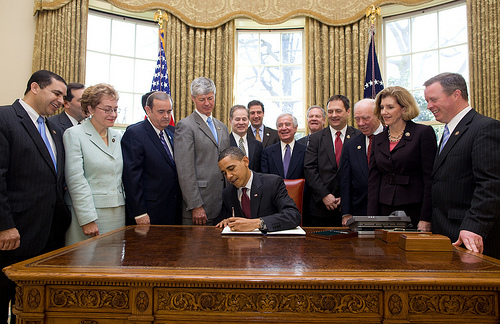The legality of President Obama’s contraceptive mandate is being questioned by a former Congressman who directly aided the passage of the president’s health care law.
In March 2010, the final passage of Obama’s law rested in the hands of the House of Representatives. Advocates of the bill had almost secured the necessary votes, but the final decision remained with then-Michigan Democratic Congressman Bart Stupak. Stupak and six other pro-life Democratic representatives opposed the bill because of what they believed to be a violation of the Hyde Amendment, which disallows public funding of abortion services on the basis of conscience.
In the wake of intense negotiations, Stupak voted in favor of the bill, claiming an agreement had been made between him and the president that the law would uphold the Hyde Amendment. The agreement would be part of an Executive Order signed by the president, a price extracted for allowing the bill’s passage into law, Stupak said.
Now, however, Stupak says the President didn’t live up to his word. The administration’s contraceptive mandate does not exempt many religious institutions, forcing them to pay for contraceptives and abortifacients, which for many institutions is a violation of their conscience.
Unethical and Illegal
Not only is this unethical from Stupak’s point of view, but it is also illegal.
“I am perplexed and disappointed that, having negotiated the Executive Order with the President, not only does the HHS mandate violate the Executive Order, it violates statutory law,” Stupak said, speaking at the Democratic National Convention while on a “Democrats for Life” panel.
The Omnibus Budget Act of 2009, according to Stupak, had “very articulate language” referring to the prohibition of the use of public funds for abortion services. Stupak believes that under this language and the Hyde Amendment, Obama’s mandate is illegal.
Direct language on public funding of abortions isn’t found in the Act, but it does include a section that specifically appropriates money to programs “reducing abortions.”
Stupak’s regrets may be little solace to those institutions currently defending their religious liberty in the courts, where they have brought legal challenges to the contraceptive mandate as a violation of their First Amendment rights. Whether legal action will be taken to validate Stupak’s claims remains to be seen.





